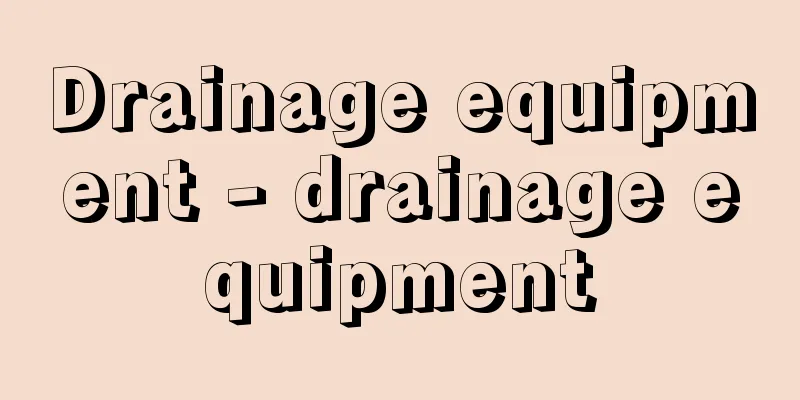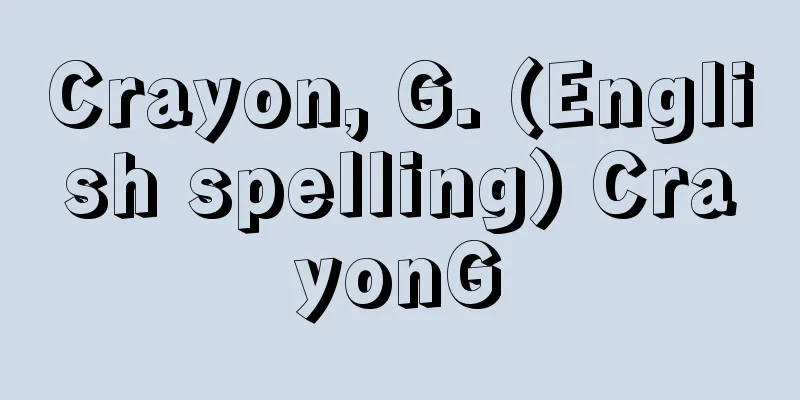Search - Sosaku

|
Under the Criminal Procedure Law, it refers to a compulsory measure taken against a certain place, object, or person with the purpose of discovering an object or person. The Constitution stipulates that the right of every person to be free from intrusion, search, and seizure of his or her home, papers, and belongings shall not be violated without a warrant issued for a valid reason and specifying the place to be searched and the objects to be seized, except in cases accompanying a lawful arrest (Constitution, Article 35, Paragraph 1). Furthermore, it stipulates that searches and seizures shall be carried out with separate warrants issued by competent judicial officials (judges) (Constitution, Article 35, Paragraph 2), establishing the principle of the so-called warrant system. Therefore, searches with a warrant are the rule, and searches without a warrant are the exception. Searches may be conducted by investigative agencies or by courts. When necessary for the investigation of a crime, a public prosecutor, a public prosecutor's assistant officer, or a judicial police officer may conduct a search using a search warrant issued by a judge. In many cases, a search warrant is issued together with a seizure warrant as a search and seizure permit. A body search must be conducted using a body search warrant (Criminal Procedure Law, Article 218). However, as an exception, when a public prosecutor, a public prosecutor's assistant officer, or a judicial police officer arrests a suspect, they may, when necessary, enter a person's residence or a mansion, building, or ship under guardianship to search the suspect, or conduct a search at the scene of the arrest without a warrant (Criminal Procedure Law, Article 220, Paragraphs 1, 3, and 4). Next, when necessary, the court may search the body, property, residence, or other places of the accused. Searches of persons other than the accused may be conducted only when there are sufficient circumstances to confirm the existence of an item to be seized (Criminal Procedure Law, Article 102). A search warrant is required for searches outside the courtroom (Criminal Procedure Law, Article 106). Regarding the method of search and seizure of electromagnetic records, the 2011 amendment to the Code of Criminal Procedure established new investigative procedures for electromagnetic records to deal with so-called high-tech crimes resulting from the sophistication of information processing by computers. Regarding the execution method of seizure of electromagnetic records, a new form of seizure was established in which electromagnetic records are copied, printed or transferred to other recording media as an alternative to the original seizure (Article 110-2 of the Code), and along with this, a clear provision was established regarding access to connected recording media as a search method. In other words, when a specific computer is searched with a search and seizure warrant and it is found that the electromagnetic records of interest are stored in another computer connected to the computer, the electromagnetic recording media may be copied from the recording media connected to the computer to the computer or another recording media, and the computer or recording media may be seized (Article 99-2, Article 218-2 of the Code). In this case, in order to prevent exploratory searches, the objects of copying were limited to electronic records that were created or modified on the computer in question, or electronic records that are deemed to be capable of being modified or erased on the computer in question, and there was a restriction that the objects were only to be found to be used to store the electronic records in question. In the case where the connected storage medium is located in a foreign country, the Convention on Cybercrime provides that publicly available stored computer data may be accessed and that cross-border access may be made if the lawful and voluntary consent of a person who has the legal authority to disclose such data to the country is obtained (Article 32 of the Convention on Cybercrime). If such conditions are not met, it becomes an issue of international mutual assistance in investigations. In addition, in order to ensure the execution of searches and seizures due to the increasing complexity of computer technology, it is possible to request the person who is subject to search and seizure measures to operate the computer and other necessary cooperation (Article 111-2 of the Code of Criminal Procedure), and it is also possible to request telecommunications carriers to preserve communication records necessary for tracing electromagnetic records for a period not exceeding 30 days in principle (Article 197-3 of the Code). [Ichiro Uchida and Morikazu Taguchi, April 18, 2018] [References] | | |Source: Shogakukan Encyclopedia Nipponica About Encyclopedia Nipponica Information | Legend |
|
刑事訴訟法上は、一定の場所、物または人の身体について、物または人の発見を目的として行われる強制処分をいう。憲法は、何人(なんぴと)も、その住居、書類および所持品について、侵入、捜索および押収を受けることのない権利は、適法な逮捕に伴う場合を除いては、正当な理由に基づいて発せられ、かつ捜索する場所および押収する物を明示する令状がなければ、侵されないと規定している(憲法35条1項)。さらに、捜索または押収は、権限を有する司法官憲(裁判官)が発する各別の令状により、これを行うと規定し(同法35条2項)、いわゆる令状主義の原則を定めている。したがって、令状による捜索が原則であり、令状によらない捜索は例外である。捜索は、捜査機関が行う場合と裁判所が行う場合とがある。 検察官、検察事務官または司法警察職員は、犯罪の捜査に必要な場合、裁判官の発する捜索状により捜索をすることができる。捜索状は、差押状と一括して捜索差押許可状として発付される場合が多い。なお、身体の検査は、身体検査令状によらなければならない(刑事訴訟法218条)。ただし、例外として、検察官、検察事務官または司法警察職員は、被疑者を逮捕する場合において、必要があるときは、令状なくして、人の住居または人の看守する邸宅、建造物もしくは船舶内に入り被疑者の捜索をすること、逮捕の現場で捜索を行うことができる(同法220条1項・3項・4項)。次に、裁判所は、必要があるときは、被告人の身体、物または住居その他の場所について、捜索をすることができる。被告人以外の者のそれについては、押収すべき物の存在を認めるに足りる状況のある場合に限り、捜索することができる(同法102条)。公判廷外における捜索には、捜索状を必要とする(同法106条)。 電磁的記録物の捜索・差押えの方法については、2011年(平成23)の刑事訴訟法改正により、コンピュータによる情報処理の高度化に伴ういわゆるハイテク犯罪に対処するための電磁的記録物に関する新たな捜査手続が創設された。電磁的記録物の差押えの執行方法につき、本来の差押えの代替処分としての電磁的記録を他の記録媒体に複写し、印刷しまたは移転してする差押え形態が創設され(同法110条の2)、これに伴って捜索の方法としての接続先記録媒体へのアクセスに関する明文規定が設けられた。すなわち、捜索差押許可状により特定のコンピュータを捜索したところ、目的とする電磁的記録が当該コンピュータに接続している別のコンピュータに蔵置されていることが判明した場合に、当該コンピュータに接続している記録媒体からその電磁的記録媒体を当該コンピュータまたは他の記録媒体に複写したうえ、当該コンピュータまたは記録媒体を差し押さえることができることとされた(同法99条2項、218条2項)。この場合、探索的な捜索を防止するために、複写対象に関して、当該コンピュータで作成もしくは変更をした電磁的記録または当該コンピュータで変更もしくは消去することができるとされている電磁的記録に限定され、かつ、当該電磁的記録を保管するために使用されていると認めるに足りる状況のあるものという限定が加えられた。 接続している記録媒体が外国領域内にある場合につき、サイバー犯罪に関する条約は、公に利用可能な蔵置されたコンピュータ・データにアクセスすることおよび当該データを自国に開示する正当な権限を有する者の合法的かつ任意の同意が得られる場合には、国境を越えるアクセスができると規定している(サイバー犯罪に関する条約32条)。このような条件が整わない場合は国際捜査共助の問題となる。なお、コンピュータ技術の複雑化に伴って捜索・差押えの執行を確保するために、捜索・差押えの処分を受ける者に対し、コンピュータの操作その他の必要な協力を求めることができるとされ(刑事訴訟法111条の2)、また、電磁的記録の追跡に必要な通信記録の保存を通信事業者に対して原則として30日を超えない期間を定めて要請することができることとされた(同法197条3項)。 [内田一郎・田口守一 2018年4月18日] [参照項目] | | |出典 小学館 日本大百科全書(ニッポニカ)日本大百科全書(ニッポニカ)について 情報 | 凡例 |
Recommend
Flying fire - Tobibi
〘noun〙① The scattering of sparks. Also, the sparks...
Uze - Unose
…The annual festivals are held on October 10th at...
Hermit - Inja
Japan A person who leaves the secular world in or...
Brassavola
...(2) Tropical America: South of Mexico and Flor...
Caliph - karifu (English spelling)
A term used in Islamic political science to refer...
Building Police - Building Police
...According to the theory of special power relat...
Capsa - Capsa
...It arose toward the end of the Pleistocene, fo...
Gairani - Gairani
… He was from a prominent Sunni family in Baghdad...
Galois, EM - Galois
…An insect belonging to the family Galloidea (ill...
Jungle Fraujoch
…The view is wonderful when you climb from Grinde...
Chechnya (Republic)
A republic in the southwest of the Russian Federat...
lying
…Another aspect that is relevant to arboreal life...
Broadcast reception fee - housoujushinryo
This is a fee collected by the Japan Broadcasting ...
Aristotle's Philosophy
…Many of his philosophical works were translated ...
K value - K
This refers to the smoke and soot emission standa...









